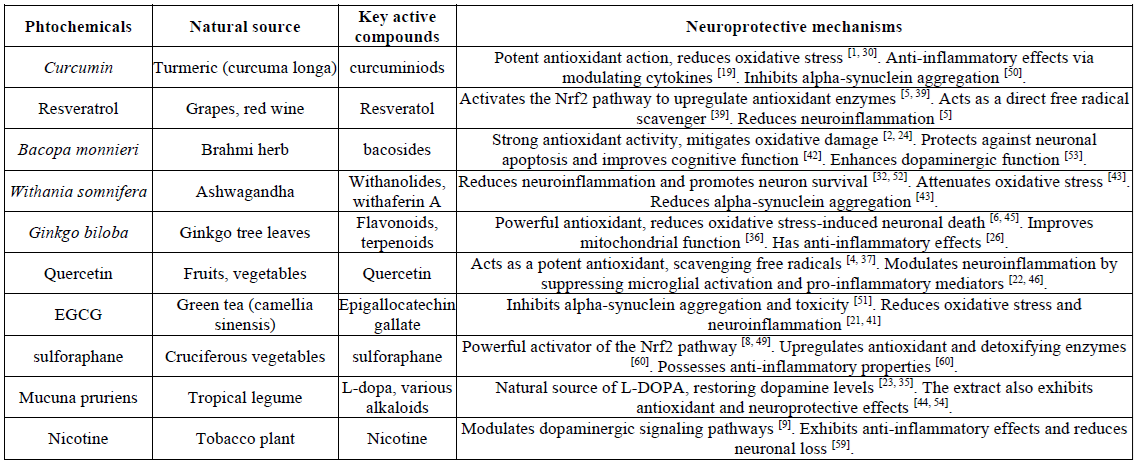- Printed Journal
- Indexed Journal
- Refereed Journal
- Peer Reviewed Journal

Journal of Pharmacognosy and Phytochemistry
Vol. 14, Issue 5 (2025)
Neuroprotective phytochemicals targeting dopaminergic neurons in Parkinson’s disease
Aashi MS Jain, Nuzhat Qureshi and Zenab F Rampura
Parkinson's Disease (PD) is a progressive neurodegenerative disorder primarily caused by the irreversible loss of dopaminergic neurons. Current therapies offer only symptomatic relief, failing to halt the disease's progression. This limitation has prompted the search for new neuroprotective agents, with phytochemicals emerging as a promising area of research. This review explores the potential of various plant-derived compounds, including Curcumin, Resveratrol, Withania somnifera, and Bacopa monnieri. These agents demonstrate their protective effects by targeting the core pathological mechanisms of PD, such as mitigating oxidative stress, reducing neuroinflammation, and inhibiting alpha-synuclein aggregation. We conclude that these compounds offer a multifaceted therapeutic approach. However, further research, including clinical trials and bioavailability studies, is essential to confirm their efficacy and safety for human use.

Fig. 1: This table provides a detailed overview of the key phytochemicals discussed, highlighting their natural sources, specific active compounds, and the multifaceted neuroprotective mechanisms they employ to combat the pathology of Parkinson's disease
Pages: 450-455 | 87 Views 55 Downloads







